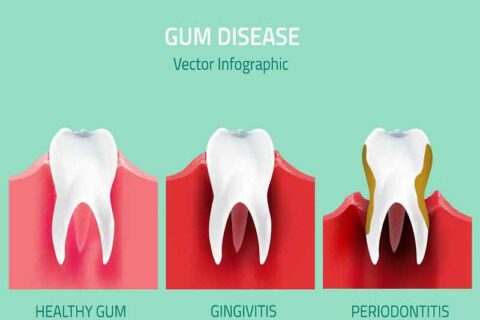Why Gum Disease Affects More Than Just Your Mouth

The success of your oral health rests on your shoulders. Maintaining healthy teeth and gums isn’t just about fresh breath or a nice smile. It’s important to your overall health. Periodontal disease can erode the foundation of your mouth and pose a threat to your whole body. Some chronic conditions that have been linked to gum disease are dementia, Alzheimer’s, stroke, heart disease, and bone loss. Unfortunately, bone loss can be permanent. But there are things you can do to manage the disease and avoid surgery.
Brushing and flossing is critical to your oral health and is one of the ways in which you can prevent periodontitis. It is essential to practice healthy habits and to take care of your dental health. According to the ADA, it is recommended to brush your teeth daily for at least two minutes. The type of toothbrush that the ADA recommends is a soft bristled toothbrush. Your dentist may also recommend Rotadent, a specialized toothbrush available only through your dental professional, to ensure that you have the best homecare. Using Rotadent results in more efficient plaque removal between teeth and below the gumline. Rotadent’s unique brush head technology includes gentle MicroFilaments and a 360-degree rotation for thorough biofilm removal.
Gum disease and plaque buildup can be fought by both flossing and brushing. However, the process of brushing and flossing are quite different. Brushing removes plaque from the front and back surfaces of your teeth whereas flossing is able to eliminate plaque from between the teeth and under the gums. The correct way to floss your teeth is by flossing up and down along the outer surface and beneath the gum tissue. Flossing daily, along with brushing of course, can be a way to forestall bleeding of the gums.
Your dentist may recommend home treatment using fluoride, Chlorhexidine, or other medicaments. Fluorides can prevent decay, inhibit plaque and reduce sensitivity. Chlorhexidine is used to reduce the bleeding, redness and swelling associated with gingivitis.

